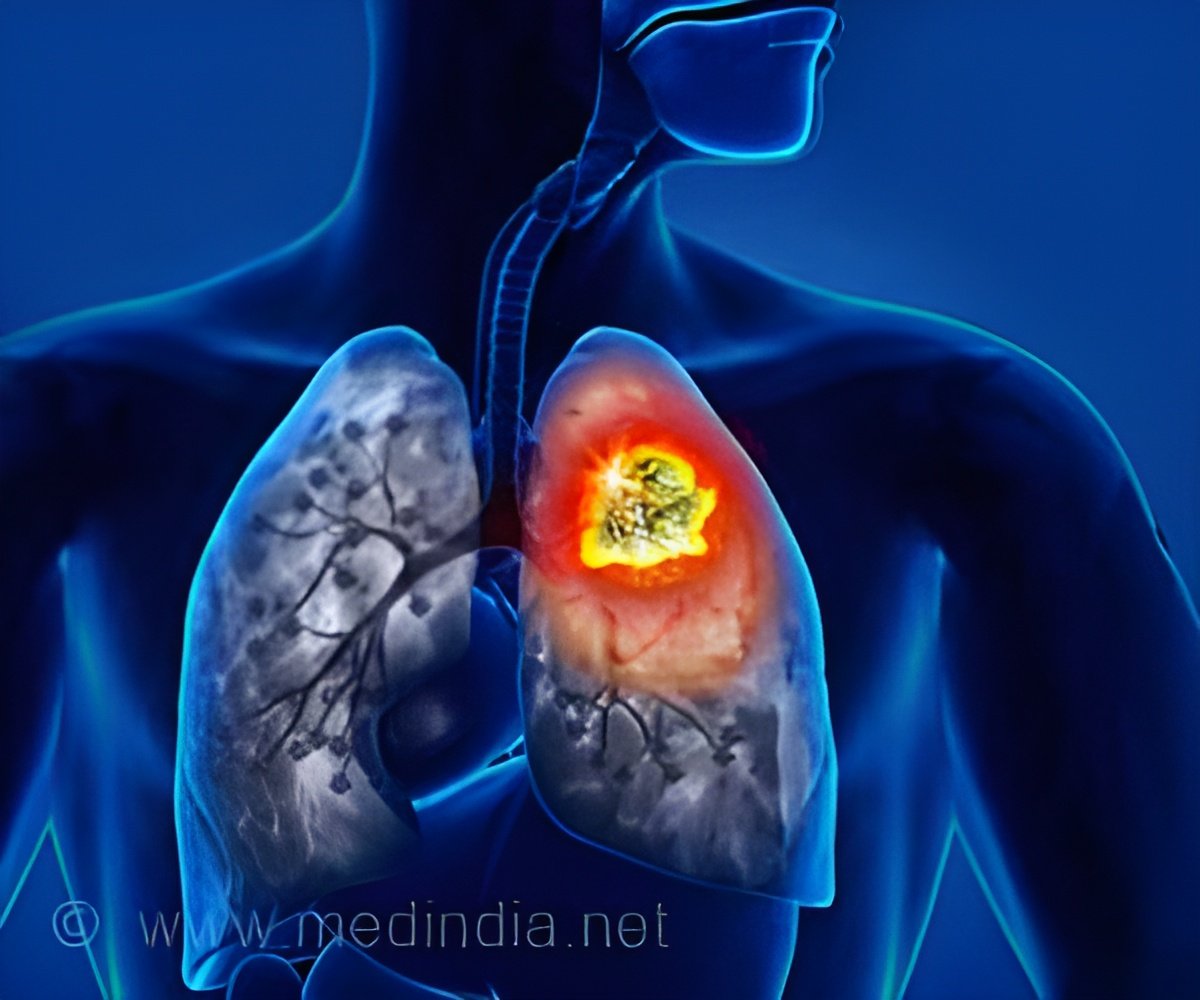
‘Low levels of superoxide byproducts can cause normal cells to become cancerous, and at higher levels, cell death and damage to tissues and organs occur.’
Tweet it Now
Research by Rutgers Cancer Institute of New Jersey investigators are presenting the results of their work as part of a poster session at the American Association for Cancer Research Annual Meeting in Chicago.The five-year relative survival rate for lung cancer is 18 percent. The laboratory of X.F. Steven Zheng, PhD, co-director of the Cancer Pharmacology Program at Rutgers Cancer Institute, has studied associations between NSCLC and the SOD1 enzyme.
SOD1 is an enzyme that removes a specific radical byproduct created during the energy-producing process of cell metabolism. This ‘superoxide’ byproduct comes from a family of byproducts known as reactive oxygen species (ROS).
These byproducts can modify fats, proteins and DNA in a chemical reaction called oxidation, causing these biological molecules to lose functions.
Low levels of these byproducts can cause normal cells to become cancerous. At higher levels, cell death and damage to tissues and organs can occur.
Advertisement
In this current work, Zheng and colleagues used lung cancer laboratory models in which the SOD1 enzyme was genetically removed.
Advertisement
Also, using tumor-derived primary cancer cells from laboratory models, researchers show that SOD1 is critical for NSCLC cell proliferation and survival.
“The novel functions of SOD1 identified through our study are of biological and translational significance and provide further support for SOD1 as a promising therapeutic target for non-small cell lung cancer,” notes Zheng, who is the senior investigator of the work and also a university professor at Rutgers Robert Wood Johnson Medical School.
“Identifying and studying new drug targets are important for improving lung cancer survival.”
Along with Zheng, the author team consists of Xiaowen Wang, Rutgers University School of Graduate Studies Biomedical Sciences; Justin Wong, Rutgers University School of Arts and Sciences; Holly Van Remmen, Oklahoma Medical Research Foundation; Jessie Yanxiang Guo, Rutgers Cancer Institute of New Jersey and Rutgers Robert Wood Johnson Medical School; and Eileen White, Rutgers Cancer Institute of New Jersey and Rutgers University School of Arts and Sciences.
The study was supported by grants from the National Institutes of Health/National Cancer Institute.
Source-Newswise













